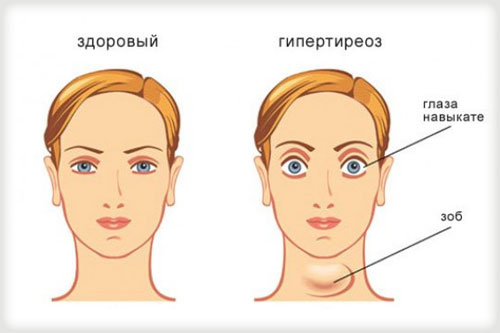Link Between Hypothyroidism and Insulin Resistance
페이지 정보
작성자 Jami 작성일 25-05-22 22:52 조회 5 댓글 0본문
The thyroid gland plays a crucial role in regulating various bodily functions such as heat regulation, enhancing endurance, and maintaining body temperature. Any imbalance or disorder in the thyroid gland can have severe health repercussions on the overall health of an individual. One of the most significant links between thyroid disorders and other health conditions is their association with type 2 diabetes.
Thyroid disorders are a common health issue, affecting scores of people internationally. The two primary types of thyroid disorders are hypothyroidism, where the thyroid gland produces inadequate thyroid production, and excessive thyroid production. The symptoms of these disorders can vary from subtle to extreme and may include fatigue, apparent weight loss, and brain fog.
On the other hand, diabetes is a prolonged metabolic disorder characterized by the body's inability to use insulin effectively. There are three primary types of diabetes: autoimmune diabetes, type 2, and hormonal diabetes. Autoimmune diabetes is an autoimmune condition where the body's immune system attacks the insulin-producing cells. Type 2 diabetes is often associated with unfavorable behaviors such as obesity and physical inactivity. Pregnancy-related diabetes occurs during pregnancy due to variations in hormone levels.
Research has shown that there is a robust link between thyroid disorders and diabetes. Studies have found that individuals with thyroid disorders are more susceptible to develop diabetes, and vice versa. This is because both conditions share common causes, such as hereditary influences, lifestyle, and узи щитовидной железы excess weight.
One major mechanism by which thyroid disorders contribute to the development of diabetes is through blood sugar issues. Insulin resistance is a condition where the body's cells become less sensitive to glucose regulation, leading to increased blood sugar levels. Hyperthyroidism can lead to glucose intolerance, as the high thyroid hormone can hinder the body's ability to regulate glucose levels.
Another mechanism is through inflammatory response. Both thyroid disorders and diabetes are marked by by ongoing inflammatory processes, which can worsen the condition and lead to additional complications. For example, research has shown that Thyroid overactivity can lead to elevated inflammation in the pancreatic islets, which can harm the pancreatic beta cells and contribute to the development of diabetes.
Furthermore, there is evidence to suggest that thyroid disorders may also contribute to the development of Lifestyle-related diabetes through other mechanisms, such as family history and environmental influences. For example, a study found that individuals with Low thyroid function were more susceptible to develop type 2 diabetes due to family history that affect thyroid function.
In conclusion, the link between thyroid disorders and diabetes is a multifaceted one. Both conditions share risk factors and research has shown that thyroid disorders can contribute to the development of diabetes through blood sugar issues, inflammation, and other mechanisms. As such, it is vital for clinicians to be aware of this link and to monitor patients with thyroid disorders for signs of diabetes, and vice versa.
Early detection and treatment of thyroid disorders can help prevent the development of diabetes, while also minimizing the risk of complications associated with both conditions. Additionally, health-promoting habits such as maintaining a sound body mass, following a balanced diet, and engaging in consistent exercise routine can also support prevent the development of diabetes and facilitate the management of thyroid disorders.
In summary, the association between thyroid disorders and diabetes is a robust one, and clinicians need to be aware of this link to provide prompt and effective management of both conditions. By recognizing the mechanisms underlying this association and implementing evidence-based treatments, we can enhance the health outcomes of individuals with both thyroid disorders and diabetes.

댓글목록 0
등록된 댓글이 없습니다.
